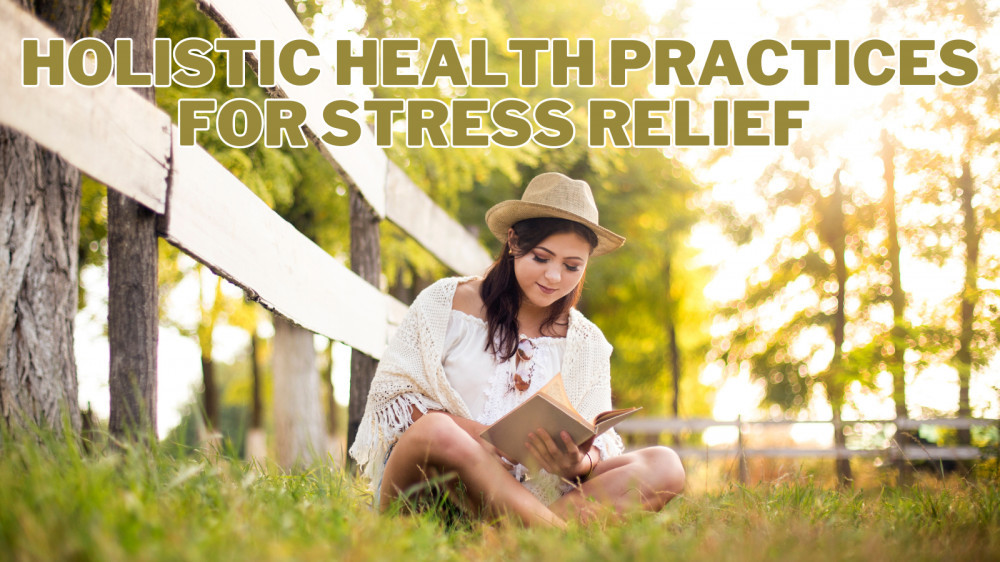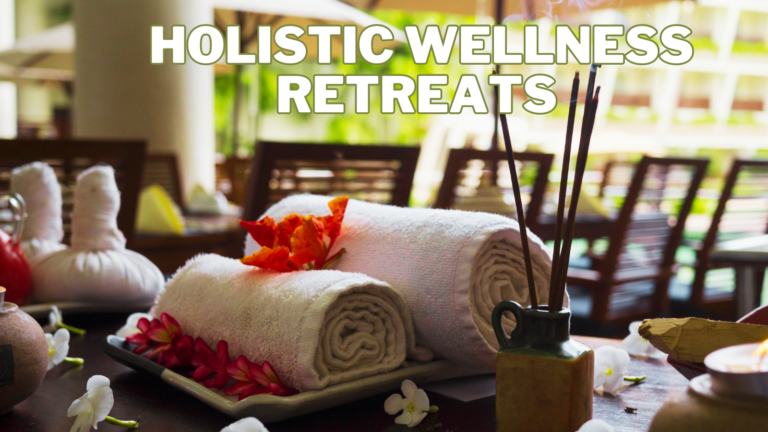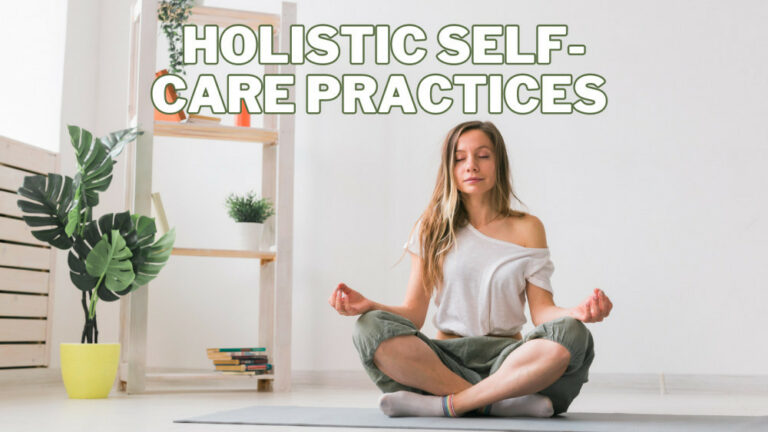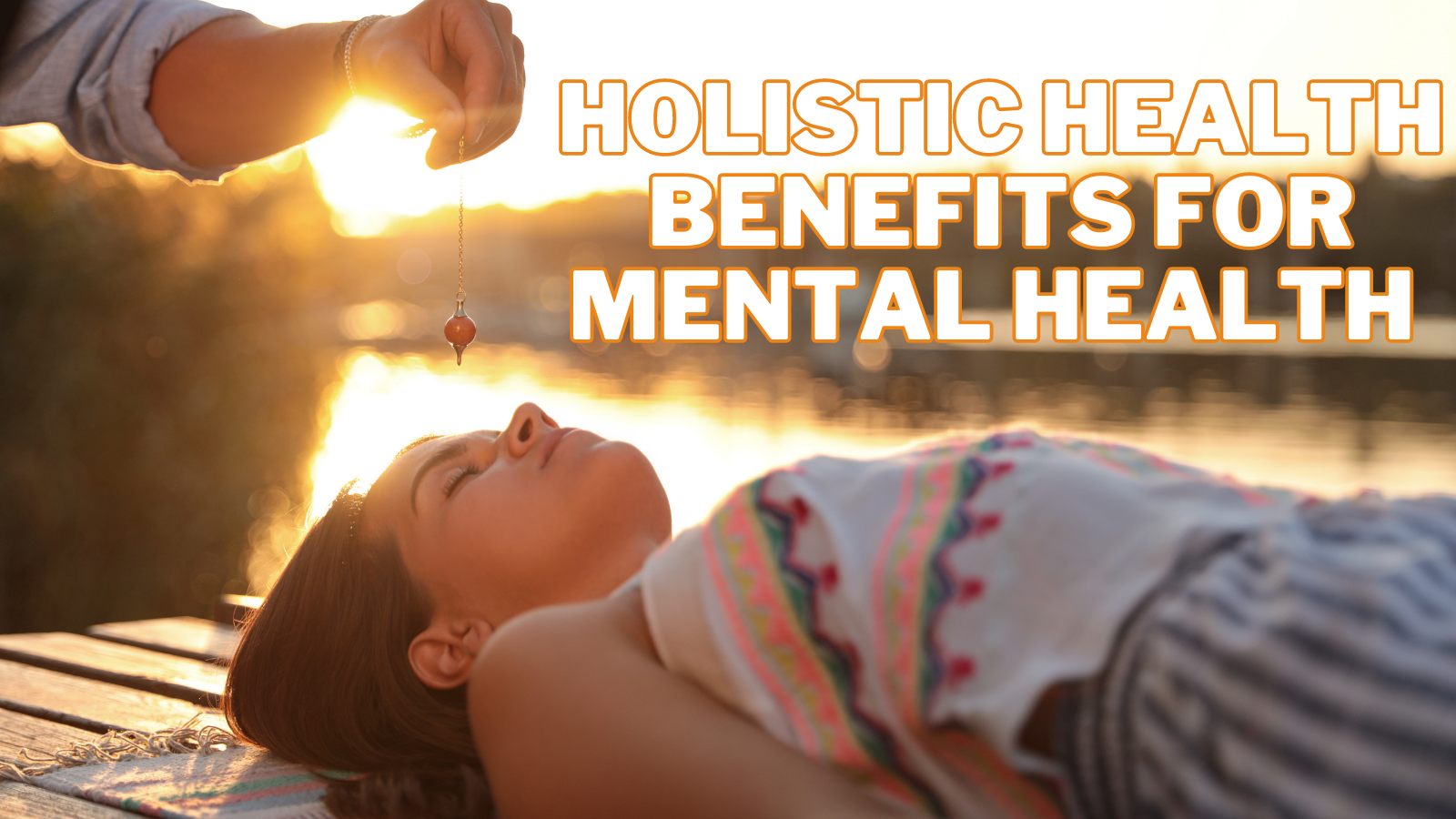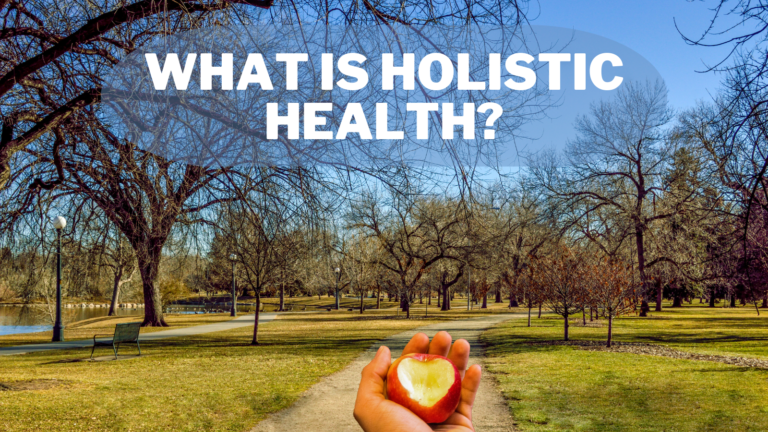Best Holistic Health Practices For Stress Relief
Best Holistic Health Practices For Stress Relief
Stress has become a regular companion for many people in our fast-paced and demanding modern society.
Stress may hurt our physical and emotional well-being, whether work pressures, personal difficulties, or the weight of everyday obligations bring it on.
A growing number of people are turning to holistic health practices as a comprehensive strategy for finding relief from stress, even though there are many ways to do so.
We will examine many holistic health methods that are efficient at reducing stress in this post. A wide range of approaches are included in these activities, including yoga, aromatherapy, herbal medicines, breathwork, and more.
We'll explore each technique's underlying ideas to learn how they help us manage stress.
Relation Between Holistic Health And Stress
Holistic health refers to an approach that considers the overall well-being of an individual, encompassing physical, mental, emotional, and spiritual aspects of health.
It recognizes the interconnectedness of these dimensions and emphasizes the importance of balance and harmony among them.
On the other hand, stress refers to the body's response to external pressures or demands, which can arise from various sources such as work, relationships, financial issues, or health concerns.
The relationship between holistic health and stress is significant, as stress can profoundly impact all aspects of a person's well-being.
When individuals experience, high-stress levels can negatively affect their physical health by contributing to conditions such as headaches, muscle tension, digestive issues, weakened immune system, and sleep disturbances.
Prolonged stress can even increase the risk of developing chronic illnesses such as cardiovascular diseases, diabetes, and mental health disorders.
Furthermore, stress has a considerable impact on mental and emotional well-being. It can lead to feelings of anxiety, irritability, restlessness, and overwhelm.
Chronic stress can contribute to developing or exacerbating mental health conditions, including depression, anxiety disorders, and burnout.
Moreover, stress can interfere with cognitive function, affecting memory, concentration, and decision-making abilities.
From a holistic health perspective, stress is seen as an imbalance or disruption in the overall equilibrium of the individual. It is essential to address stress holistically by considering its impact on physical, mental, emotional, and spiritual dimensions.
Holistic approaches to stress management often involve a combination of strategies, including lifestyle changes, self-care practices, relaxation techniques, social support, and seeking professional help when needed.
For instance, physical activities such as exercise and yoga can help reduce stress by promoting the release of endorphins, improving cardiovascular health, and relaxing tense muscles.
Mental and emotional well-being can be nurtured through mindfulness meditation, journaling, and counselling, which help individuals develop self-awareness, manage their thoughts and emotions, and cultivate resilience.
Additionally, engaging in activities that bring joy and fulfillment, connecting with loved ones, and fostering a sense of purpose can contribute to overall holistic well-being and help mitigate stress.
In summary, stress and holistic health are closely interconnected. Stress can significantly impact an individual's physical, mental, emotional, and spiritual well-being.
Adopting holistic approaches to stress management can promote balance, resilience, and overall well-being by addressing stress across all dimensions of health.
Holistic Health Practices For Stress Relief
Holistic health techniques provide a comprehensive approach to stress alleviation by addressing all the interrelated facets of our well-being.
We may nourish our physical, mental, and spiritual health by implementing these activities into our daily lives, promoting harmony and peace. Here are some important holistic health techniques that are well-known for their capacity to reduce stress:
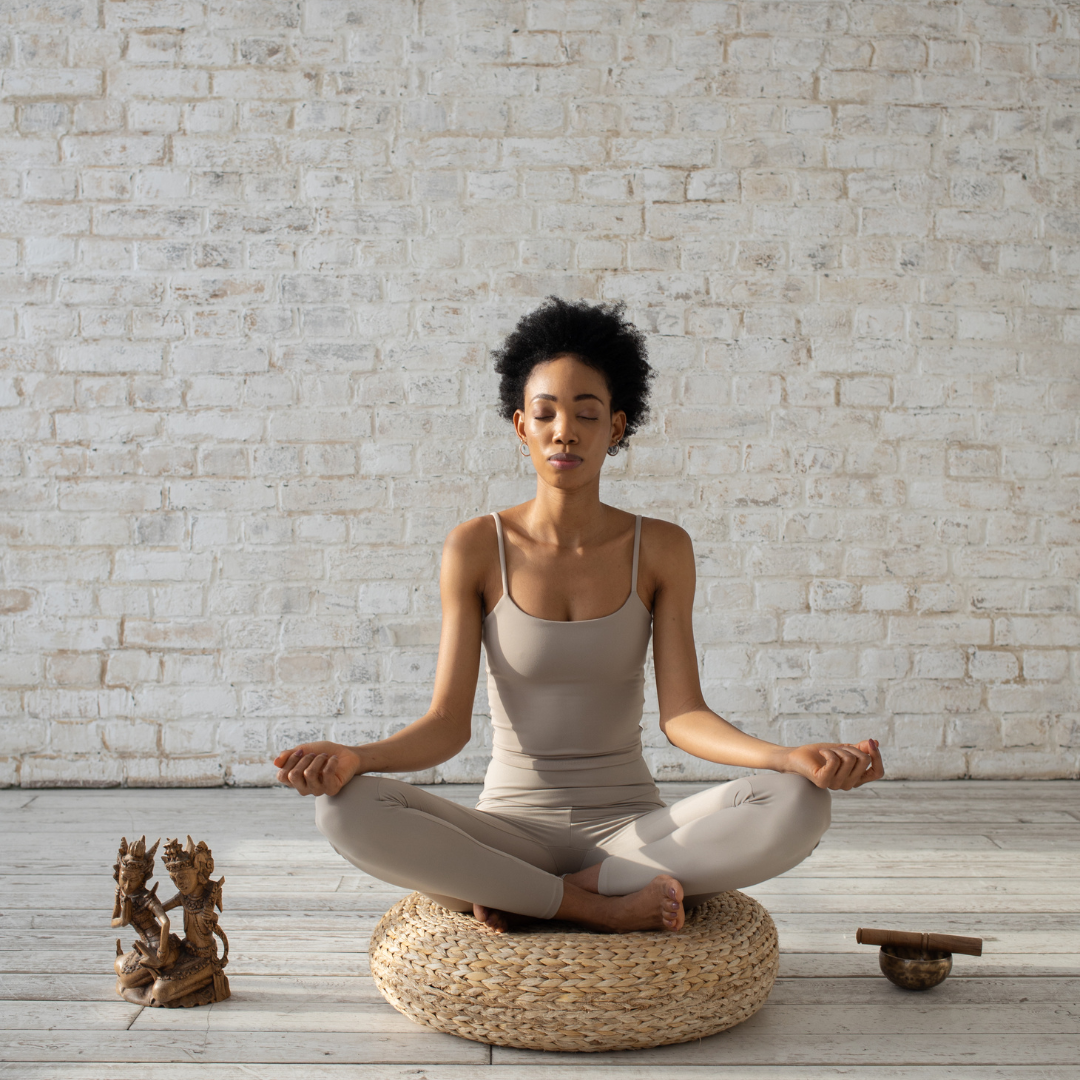
1. Mindfulness Meditation
Mindfulness meditation aims to bring awareness to the present moment with an attitude of acceptance and non-judgment.
People who practice mindfulness meditation pay attention to their breathing, physical sensations, thoughts, and emotions as they come and go without becoming caught up in them.
By cultivating this awareness, people can learn to observe stressful thoughts and feelings without becoming emotionally involved in them, which enables them to maintain a sense of separation and detachment.
This technique encourages a strong sense of serenity since it teaches people that their ideas and emotions are fleeting and do not define who they are.
Through regular mindfulness meditation, people can develop a resilient attitude that enables them to respond to situations with clarity, composure, and compassion for themselves and others.
This practice can reorganize the brain, improving emotional control, attentional control, and general well-being.
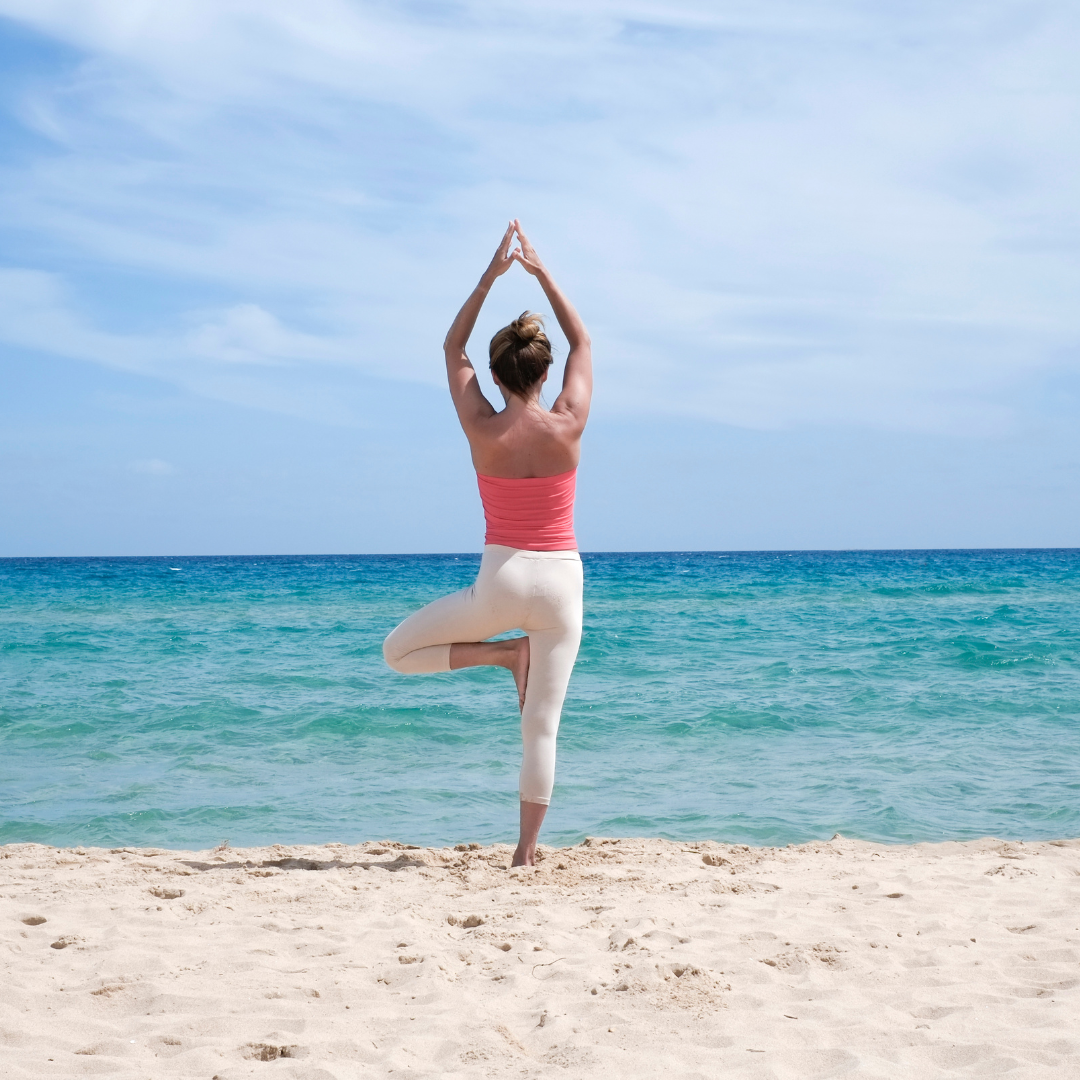
2. Yoga
Asanas (physical postures), pranayama (breath control), and meditation are all components of the holistic yoga practice.
Yoga encourages tranquillity, balance, and stress reduction by integrating these factors. The physical positions assist in releasing muscle tension and provide a sense of physical well-being by enhancing flexibility, strength, and body awareness.
People can develop a state of mindfulness by synchronizing their breathing and movement, which focuses their attention on the present and calms their minds.
Yoga's meditative component lets people let go of stress-producing ideas and discover inner calm.
Yoga's deep, regular breathing patterns also stimulate the parasympathetic nervous system, which lessens the impact of stress chemicals and activates the body's relaxation response.
Numerous advantages can result from regular yoga practice, including decreased anxiety, better sleep, improved mood, and increased general well-being.
It gives people a potent tool to escape the pressures of daily life and regain equilibrium on a physical, mental, and emotional level.

3. Breathing Exercise
The purposeful use of conscious breathing methods to promote relaxation, lower stress levels, and improve mental health is called breathwork.
Many breathwork techniques are simple to implement daily, like deep belly breathing and alternating nostril breathing. Taking long, deep breaths while extending the diaphragm and fully exhaling are all part of deep belly breathing.
By triggering the parasympathetic nerve system, this breathing method creates a sensation of calm and relaxation. When breathing through alternate nostrils, one nostril is used for inhalation and the other for exhalation.
By balancing the left and right hemispheres of the brain, this therapy aids the body's energy flow.
Breathwork techniques can lower heart rate, blood pressure, and the release of stress hormones, making them effective tools for controlling stress.
By actively controlling their breath, individuals can control their neurological systems, release tension, and create mental clarity.
Regular breathwork can improve mental health by fostering increased calmness, concentration, and general well-being.
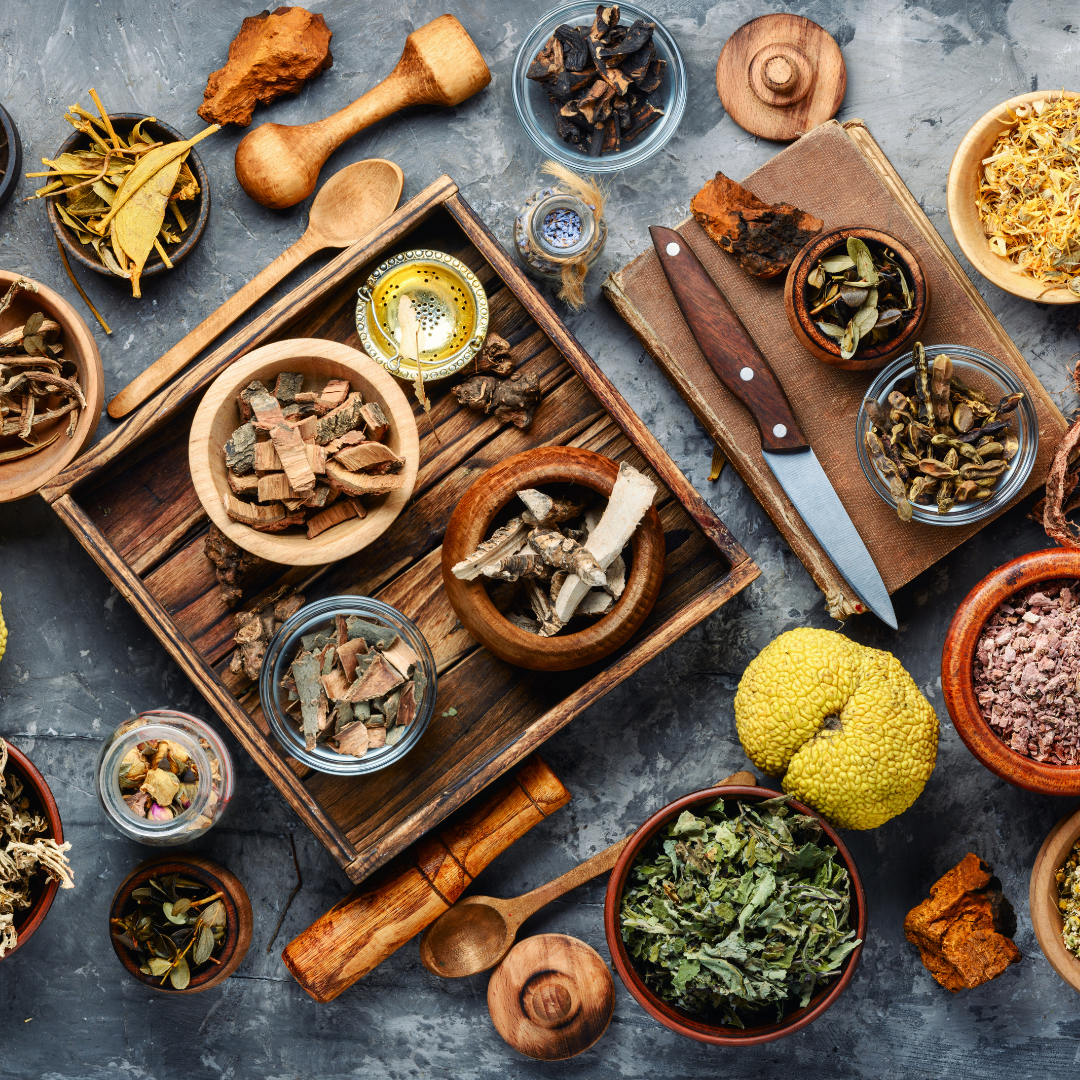
4. Herbal Remedies
Herbal treatments have a long history of use in medicine and as a stress reliever. Particularly adaptogenic herbs have grown in popularity recently because of their capacity to support overall balance and assist the body in adjusting to stress.
Herbs with a reputation for lowering stress levels include ashwagandha, holy basil, and rhodiola. For instance, ashwagandha is a well-known adaptogen that aids in controlling the body's reaction to stress and fostering a sense of calm.
Holy basil, also known as tulsi, has been utilized in Ayurvedic medicine to relieve stress and promote mental health.
Another adaptogenic plant that can increase stress resistance and boost energy is rhodiola. These herbs can be eaten in various ways, including as tinctures, teas, or nutritional supplements.
Herbal teas, tinctures, and dietary supplements are a few different ways these herbs can be eaten. While tinctures and pills offer a more robust and practical approach to taking these cures into everyday activities, herbal teas give a calming and reassuring experience.
But before beginning any herbal regimen, it's crucial to speak with a doctor or herbalist to ensure its safety and appropriate application.

5. Healthy Nutrition
The discipline of mindful eating encourages people to approach their eating behaviours with awareness and purpose.
It entails paying special attention to the sensory aspects of eating, such as the flavour, feel, and aroma of food and being conscious of signals from the body that indicate whether you are hungry or full.
People can have a better, more wholesome relationship with food by engaging in mindful eating. Adding a sense of mindfulness and presence to every meal helps decrease emotional eating, mindless eating, and overeating.
Choosing nutrient-dense foods is crucial for stress management. Nutrient-dense foods are rich in vitamins, minerals, and other beneficial compounds while relatively low in calories.
These foods include leafy greens, colourful vegetables, berries, nuts, seeds, lean proteins, and whole grains. They provide essential nutrients that support brain function, regulate mood, and promote well-being.
People can appreciate and enjoy their meals more fully by giving their full attention to the dining experience. By fully allowing the body to participate in the eating process, mindful eating also encourages better digestion and nutrient absorption.
It also promotes a stronger bond between the mind and body, heightening self-awareness and encouraging a more intuitive approach to nutrition.
Generally, mindful eating encourages a healthier relationship with food, lessens overeating, and fosters a sense of pleasure and balance in one's eating patterns, all of which can improve general well-being.

6. Journaling
A strong and practical strategy for reducing stress and promoting emotional health is journaling. Writing down ideas, feelings, and experiences in a diary lets people express themselves in a secure and judgment-free environment.
It provides a channel for expending repressed feelings, irritations, or fears that could lead to stress.
Through journaling, people can better understand and manage their pressures by gaining clarity and insight into their thoughts and emotions.
By giving words to their experiences, people can process and make sense of difficult circumstances, leading to a sense of emotional release and comfort.
By allowing people to examine their values, desires, and anxieties, journaling can be a tool for self-discovery. It presents a chance for self-examination and personal development, building a deeper comprehension of oneself and encouraging resilience in the face of hardship.
Writing in a journal may be a relaxing and therapeutic activity that creates time for reflection and self-care. Journaling can reduce stress and improve general well-being through free writing, gratitude journaling, or responding to specific prompts.
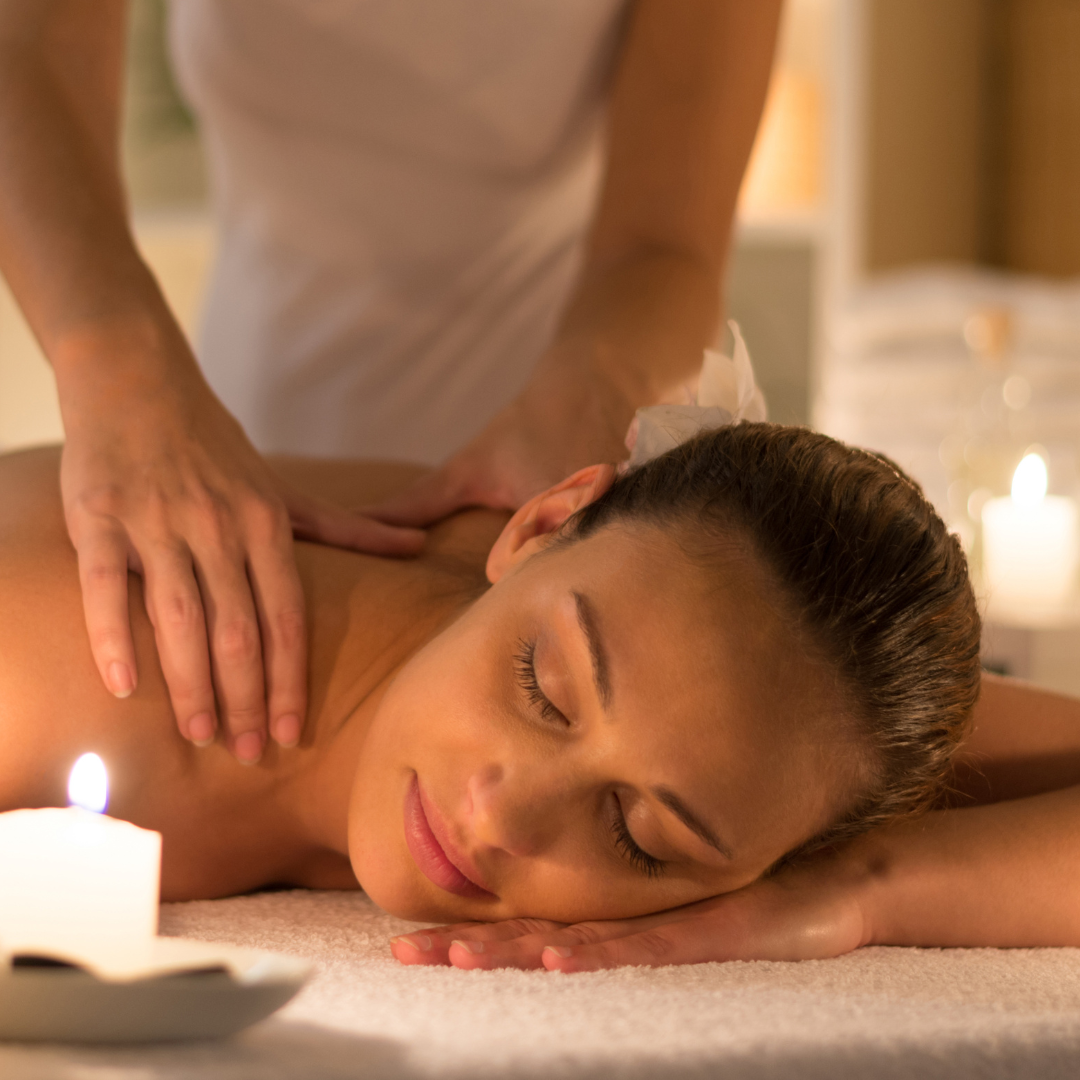
7. Massage And Bodywork
Hands-on manipulation of the body's soft tissues is a component of massage therapy and bodywork techniques, which are holistic disciplines.
Numerous modalities, including Swedish massage, deep tissue massage, and reflexology, have effectively reduced stress. A massage helps to relieve stress and knots in the body by applying pressure, kneading, and manipulating the muscles, tendons, and ligaments.
The body's natural healing reaction is stimulated, and relaxation is encouraged by this physical manipulation.
Blood circulation improves when the muscles and tissues loosen up, bringing more nutrients and oxygen to the cells while eliminating metabolic waste.
Massage's caring and tactile aspects also foster a sense of peace and comfort, triggering the parasympathetic nervous system and lowering stress hormone production.
Beyond the obvious physical advantages, massage and bodywork offer the chance for people to unplug from the outer world, pay attention to their bodily sensations, and practice mindfulness.
The therapeutic touch and setting create a secure haven for relaxation, enabling the mind to relax and unwind.
Generally speaking, massage and bodywork provide physical comfort and a holistic experience that supports both the body and mind, making them great stress-reduction techniques.

8. Sound Therapy
A holistic approach known as good therapy uses the therapeutic properties of good vibrations to encourage mental and physical recovery.
It entails various methods, including listening to calming music, singing bowls, or participating in sound healing workshops.
Our emotions, physiology, and general well-being are all significantly influenced by sound. When we listen to calming music or practice good therapy, our neurological system is stimulated, which results in a calm, profound state of relaxation.
The soothing and harmonizing sounds can help lessen stress, anxiety, and tension by calming the mind and lowering the heart rate.
Due to its ability to permeate the body deeply and dissolve emotional blocks, sound therapy is also thought to aid in emotional recovery.
Sound therapy can be a potent tool for fostering relaxation, lowering stress levels, and boosting emotional well-being.
This is true whether through the resonance of singing bowls, the peaceful melodies of calming music, or the transforming experience of sound healing sessions.
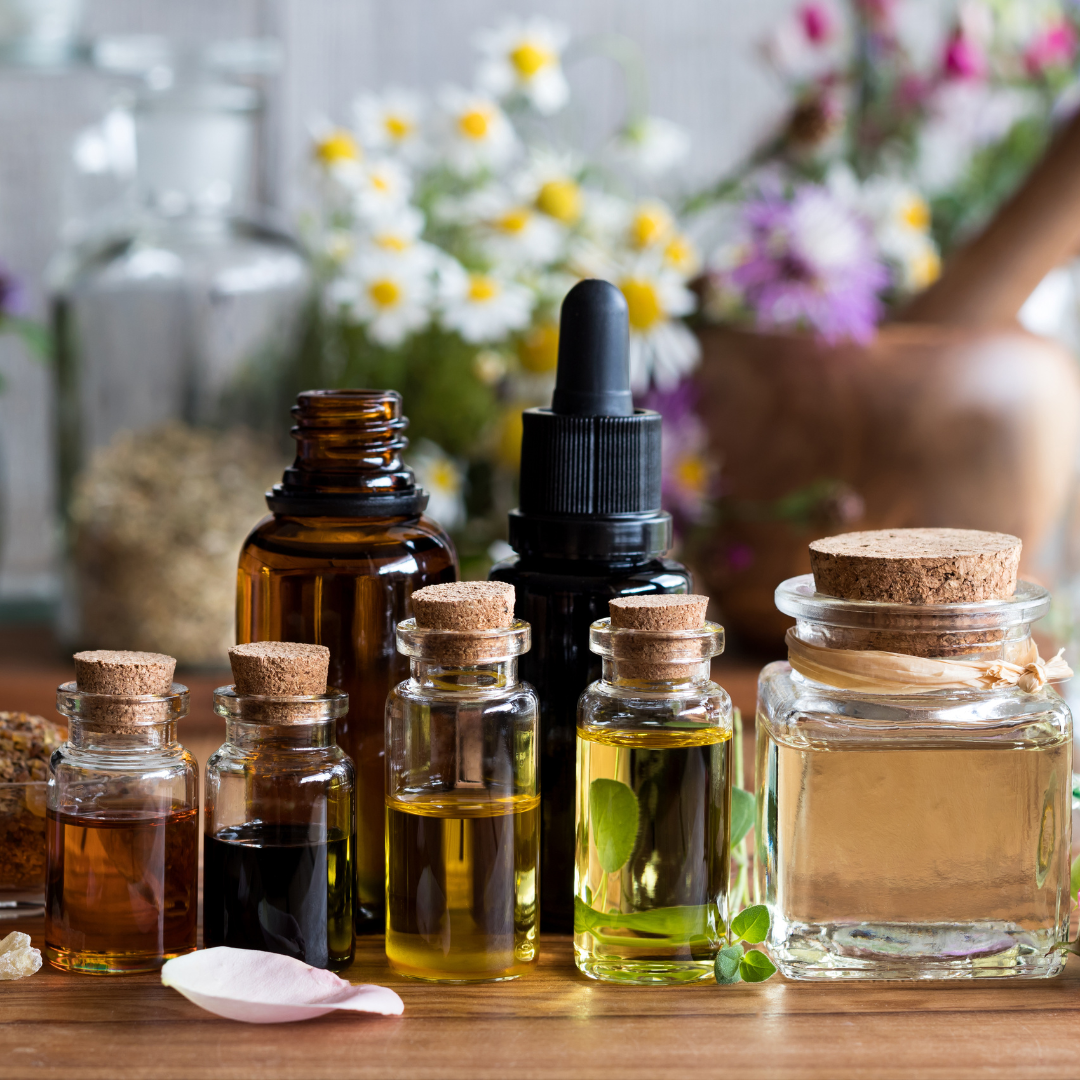
9. Essential Oils
Essential oils are highly concentrated plant extracts used for centuries in aromatherapy for their potential therapeutic benefits. Regarding stress relief, several essential oils are known for their calming and relaxing properties.
One of the most utilized essential oils for stress reduction is lavender. Its calming aroma helps people unwind, feel less anxious, and sleep better.
Creating a peaceful environment and inducing feelings of calm can be accomplished by diffusing lavender oil throughout the space, adding a few drops to a warm bath, or incorporating it into a massage oil.
Bergamot essential oil, derived from the peel of bergamot oranges, has uplifting and stress-reducing properties. Its citrusy and refreshing aroma is believed to help relieve tension, improve mood, and promote a sense of well-being. Diffusing bergamot oil in a bath or massage can help create a positive and calming environment.
Frankincense essential oil, obtained from the resin of Boswellia trees, has long been used for its grounding and relaxing properties.
Its warm and woody aroma is associated with deep relaxation and spiritual connection. Diffusing frankincense oil, using it in a meditation practice, or incorporating it into a massage oil can help reduce stress and promote inner peace.
Choosing high-quality, pure oils and following proper dilution guidelines is important when using essential oils for stress relief.
Essential oils can be used in various ways, including diffusion through a diffuser or inhalation, topical application (mixed with a carrier oil), or adding a few drops to bathwater.
However, doing a patch test before using any essential oil topically is advisable, and consult a qualified aromatherapist or healthcare professional for personalized guidance.

10. Laughter Therapy
Using humour to improve mood and reduce stress is known as laughter therapy, laughter yoga or humour therapy. The benefits of laughing can have a significant impact on both your physical and emotional health.
Your body produces endorphins when you laugh; these are organic feel-good hormones that help you relax and cope with stress.
Laughter yoga is a specific practice that combines laughter exercises with deep breathing techniques. It involves intentional laughter initially stimulated through group activities and playful exercises.
Laughter yoga sessions often include playful laughter, eye contact, and childlike playfulness. The practice does not rely on jokes or humour but encourages the act of laughing, which can lead to genuine laughter and its associated benefits.
Laughter, whether spontaneous or intentional, has numerous physiological and psychological benefits. It increases oxygen intake, stimulates the heart, and triggers muscle relaxation.
Laughter can also boost the immune system, improve blood flow, and enhance pain tolerance. Mentally, laughter helps shift perspective, reduces anxiety, and promotes a positive mindset.

Conclusion
Finally, adopting holistic health practices in our daily life offers a precise and all-encompassing method of stress reduction.
We can build a greater sense of balance and harmony, even in life's obstacles, by addressing the interrelated facets of our well-being—physical, mental, and spiritual.
Each technique has advantages and adds to a comprehensive toolbox for stress management, from mindfulness meditation and yoga to herbal medicines and journaling.
Holistic health techniques are distinctive because they strongly emphasize supporting the whole person instead of only treating symptoms.
Our journey of self-discovery, self-care, and self-empowerment begins with these practices. To support our well-being, we learn to pay attention to our bodies, accept our emotions, and make informed decisions.
So embrace the entire approach as you start your road toward stress alleviation. Remember that you can change your feelings about stress and lead a more fulfilling life. Accepting the holistic way can help you live a happy and full life.
I trust you enjoyed this article on the Best Holistic Health Practices For Stress Relief. Please stay tuned for more blog posts to come shortly. Take care!
JeannetteZ
>>>Please click here to read my all-inclusive article about Lessons That Will Teach You All About Stress<<<
Your Opinion Is Important To Me
Thoughts? Ideas? Questions? I would love to hear from you. Please leave your questions, experience, and remarks about the Best Holistic Health Practices For Stress Relief article in the comments below. You can also reach me by email at Jeannette@Close-To-Nature.org.
Disclosure
This post may contain affiliate links. As an Amazon Associate and other affiliate programs, I earn from qualifying purchases at no extra cost to you. Please read my full affiliate disclosure.
You might also enjoy these blog posts:
Best Holistic Health Benefits For Mental Health
Best Tips On Stress Management Language
Best Herbal Remedies For Skin Care

